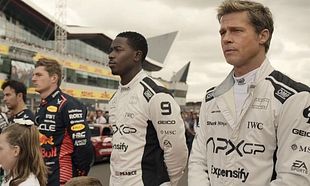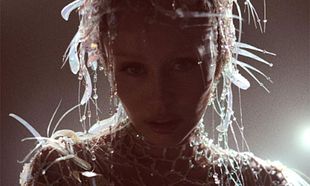After twelve years away, writer Louis (Ulliel) returns home with some devastating news: he's dying of cancer and plans to break the news to his family over dinner. However, when he gets there numerous obstacles keep him from blurting it out: elder brother Antoine (Cassel) is as cantankerous as ever; sister Suzanne (Seydoux) Louis hardly knows and can't relate to her; while excited mum (Nathalie Baye) is too busy scurrying about making meals. The only person he can talk to is Antoine's wife Catherine (Cotillard), who would rather he didn't.
Three films on from Laurence Anyways and the prolific Canadian filmmaker Xavier Dolan (five films and still only twenty-seven!) has still to come close to topping that masterpiece; follow up Tom At The Farm was an unengaging, stripped back b-side compared to Laurence's scale, and while 2014's Mommy was a return to form somewhat it was still a world away from his 2012 crowning achievement. Despite its strengths It's Only The End Of The World leaves the impression that Dolan is still playing within himself, possibly afraid of reaching again for Laurence's ambition and coming up short. It's good but…
Adapted from Jean-Luc Lagarce's play, Dolan's latest can be defined by what it isn't. It isn't a gushing melodramatic tear-jerker. It doesn't really get into backstory about the family dynamic, or why Antoine is itching for a fight all the time, or why Louis has taken so long to come home. There are hints here and there, sure, but Dolan isn't the kind of writer to lay it all out – the audience has to roll up its sleeve and get stuck in too. In fact, …World retreats from every predictable expectation a synopsis like above would suggest. It doesn't do what you want it to do.
Ulliel's Louis is a tormented figure – how does one tell one's family that this is the last time they will see you alive? – but he's also pulled by nostalgia, zoning out of conversations to gaze down a hallway that has a particular memory for him (the audience can insert their own nostalgia for a childhood home as Dolan overdo the cheap flashbacks) or lets himself be won over by the terrible thoughts raging in his head.
Dolan teases, using scenarios that build to a crescendo where Louis can no longer keep the secret – a sneaky joint with Suzanne, an argument with Antoine, a hard-fought quiet moment with mum - but then there's a word or a look and he decides the time isn't right. Only once does he follow through: in one glorious early scene there's a long look between Louis and Catherine and she suddenly understands. No words pass between them, and it's quite an assumption on Catherine's part, but Dolan's use of light, framing and slow motion urges the audience to believe such a leap is possible. It's a wonderful tender moment in a busy, shouty film.
Superb performances from all concerned (Baye in particular a standout), there's a feeling that perhaps there was a better story here that was left unexplored, that the characters could have been understood more, but there's a feeling too that it's a film that will improve on repeated viewings.
It doesn't reach the heights of Dolan's Lawrence Anyways, but there are still lots of good things in this film including the superb performances.



















































































